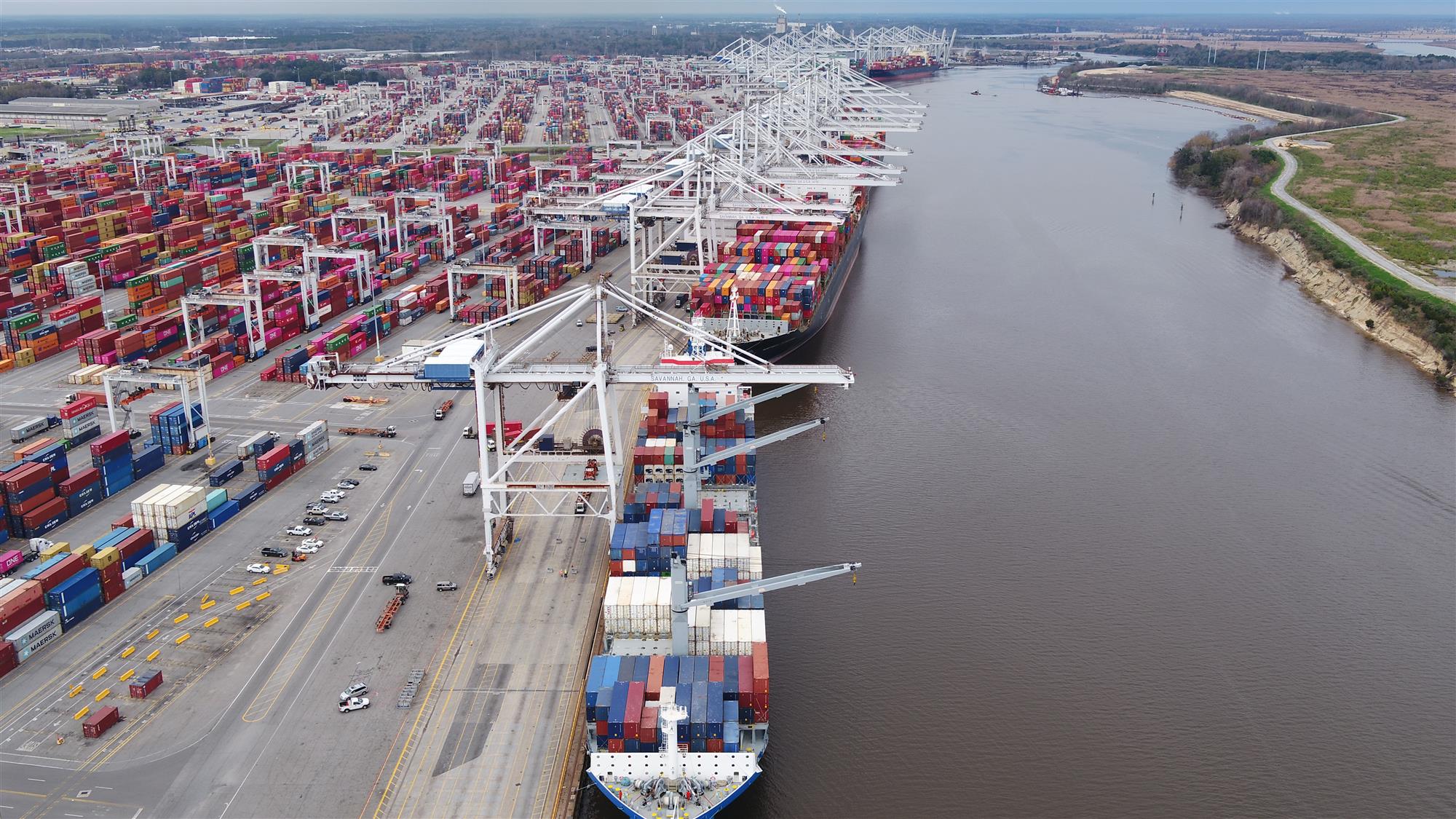The Port of Savannah saw container volumes rise in 2019 according to data released by the Georgia Ports Authority.
In a statement, it said Port of Savannah moved 4.6 million twenty-foot equivalent units (TEUs) of containers last year, an increase of nearly 250,000 TEUs or 5.6% compared to the previous year.

Griff Lynch, Georgia Ports Authority (GPA) executive director, described the 2019 performance as a "record-breaking accomplishment" for the port.
In Roll-on/Roll-off trade, GPA handled 657,685 units of cars, trucks and tractors in 2019, an increase of 12,167 units, or 2%.
"Both Savannah and Brunswick are outperforming the market, with Garden City container trade growing at a rate three times faster than the US total, and Brunswick Ro/Ro units increasing despite a drop in U.S. vehicle sales in 2019," said Will McKnight, GPA board chairman.
The port noted that Ocean Terminal picked up two new customers in 2019 - GM and Volvo - with both carmakers exporting vehicles to Australia and New Zealand via Savannah. Volvo also began exporting cars to South American markets via Brunswick.
Total tons crossing all GPA terminals reached 38.5 million, up from 36.9 million tons in 2018, an increase of 4.3%.
Lynch credited steady volumes in breakbulk cargo, combined with growth in tonnage for both bulk and containerized goods.
Port of Savannah expansion plans
Highlights of the year included a burst of new cargo handled via the Appalachian Regional Port, totalling approximately 36,000 TEUs, and the announcement of two new resin-handling facilities near Savannah, which are expected to increase export totals by around 90,000 TEUs per year.
Lynch said the Authority is building the infrastructure necessary to take on new business while maintaining the free flow of cargo.
He said an ambitious infrastructure plan will double annual rail capacity at the Port of Savannah to 2 million TEUs, expand berth capacity to handle up to six 14,000-TEU vessels by 2026, and develop another 400 acres on Colonel's Island, enough to nearly double the autoport's annual capacity from 800,000 vehicles to 1.5 million per year.